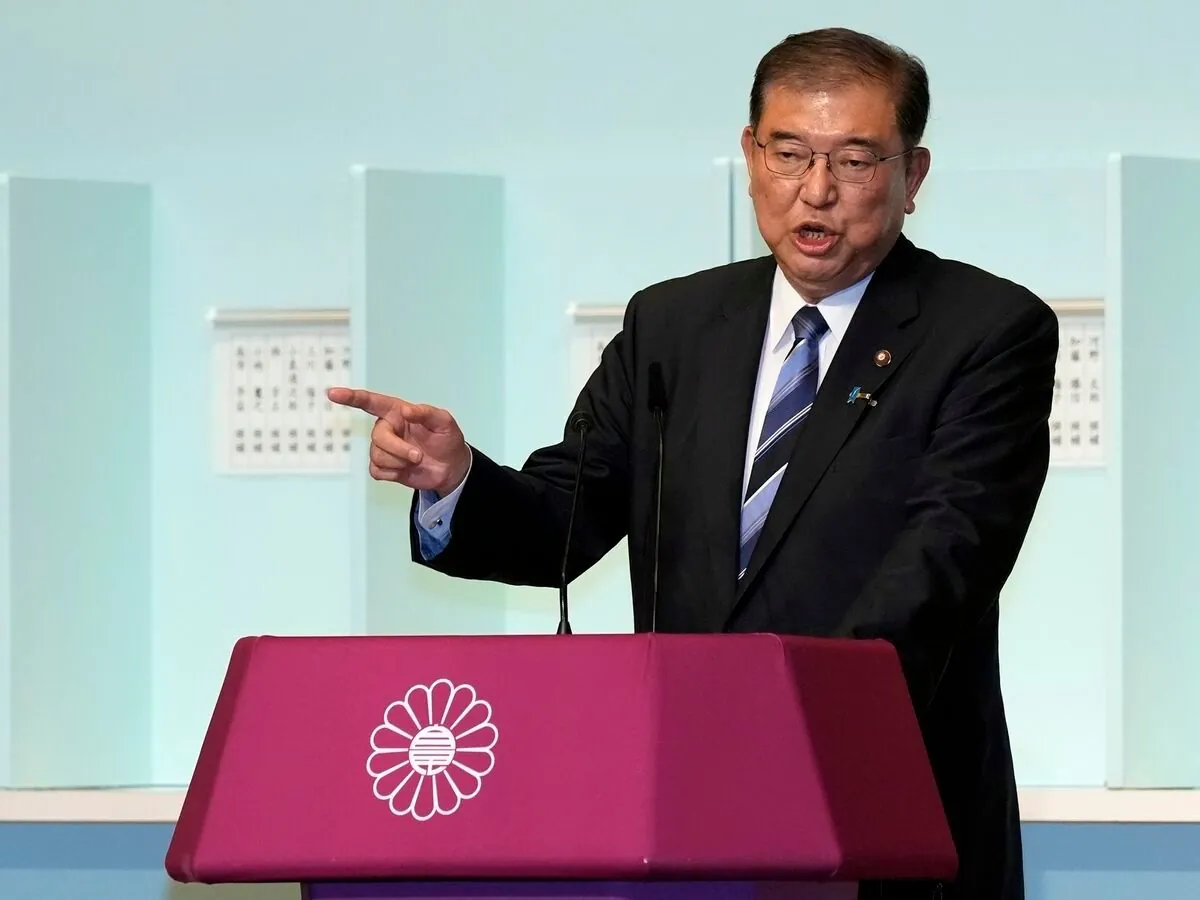Shigeru Ishiba, Japan's newly elected prime minister, has emerged as a unique figure in Japanese politics. Known for his voracious reading habits and preference for solitude over party socializing, the 67-year-old leader faces the challenge of steering the Liberal Democratic Party (LDP) through a period of crisis.
Ishiba's ascension to leadership comes after four previous unsuccessful attempts, highlighting his persistence in Japanese politics. The LDP, which has dominated Japan's political landscape for nearly seven decades, finds itself grappling with declining public support due to recent scandals and controversial affiliations.
A former defense minister with a brief banking career, Ishiba entered parliament in 1986 during Japan's economic boom. His political journey has been marked by both achievements and controversies, including a four-year defection to an opposition group in 1993. This history has contributed to friction within the LDP, making his recent leadership bid particularly challenging.
Ishiba's policy proposals reflect a focus on revitalizing Japan's regions and enhancing disaster preparedness. He has suggested relocating some government agencies outside Tokyo and establishing a dedicated emergency shelter agency. These ideas align with Japan's ongoing challenges, including its aging population and vulnerability to natural disasters.
The new prime minister's stance on U.S.-Japan relations and defense policy may introduce complexities. Advocating for a more assertive Japan with reduced reliance on the U.S. for defense, Ishiba has proposed the creation of an "Asian NATO" and called for greater oversight of U.S. military bases in Okinawa. This position could potentially impact the long-standing alliance between the two nations.
"I consider this my final battle. I will bring back a vibrant Japan where people can live with a smile."
Ishiba's leadership style and policy positions have evolved. While maintaining his reputation as an intellectual heavyweight in national security, he has softened some stances, particularly on nuclear energy. This shift demonstrates his ability to adapt to political realities while maintaining his core principles.
As Japan faces economic challenges, including a stagnant economy and demographic pressures, Ishiba's fiscal conservatism and respect for the Bank of Japan's independence may play crucial roles in shaping future policies. His approach to these issues will be closely watched as he navigates the complexities of leading a nation grappling with both domestic and international challenges.
Shigeru Ishiba's premiership marks a new chapter in Japanese politics, bringing a blend of intellectual rigor and reform-minded policies to the forefront. As he embarks on what he calls his "final battle," the coming months will reveal how effectively he can unite his party and implement his vision for a revitalized Japan.
